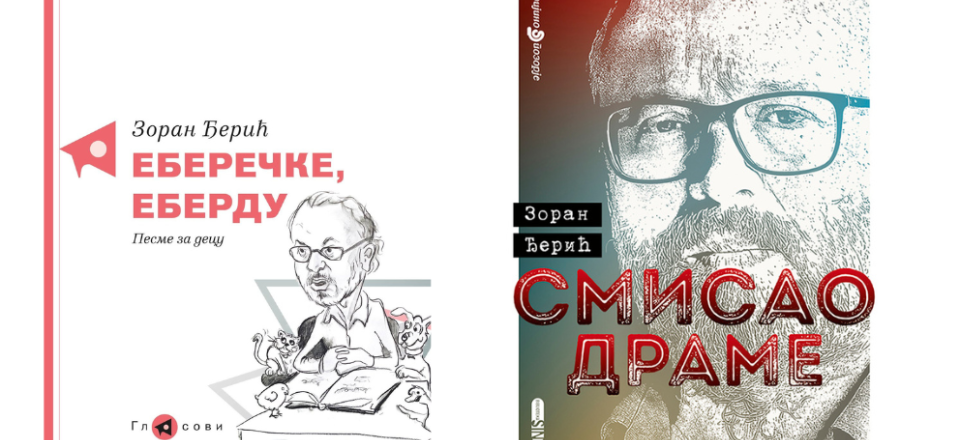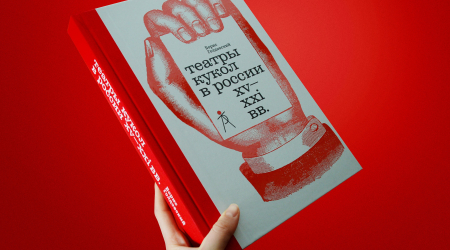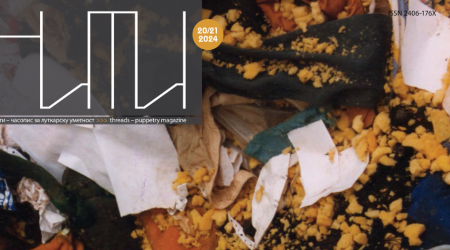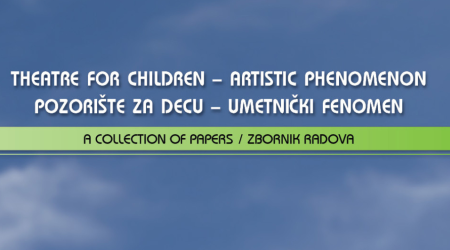Book promotions
In Loveing Memory Zoran Đeric
Back to...
26th September 2025, at 4 PM
Hotel Patria
Zoran Đeric „Eberecke, eberdu: pesme za decu”
As part of their edition Voices, the Vojvodina Cultural Center "Miloš Crnjanski" has published a collection of poems for children by Zoran Đerić entitled Eberečke, eberdu: pesme za decu (Eberečke, eberdu: Poems for Children), edited by Luka Kecman. The author of the illustrations is Leonila Jočić (a professor at the Academy of Arts, University of Banja Luka).
“After the sudden and still incomprehensible death of poet and a professor Dr Zoran Đerić, his personal computer was left behind containing a trove of textual treasure. Among these riches, poet Nenad Šaponja found a manuscript of poems for children. Most of those who knew him well were surprised by this discovery. Zoran's poems for children were never previously discussed, even though he had been associated with them for many years - as the manager of the Youth Theatre in Novi Sad. The first poem dates back to 2009 and it is clear that poems were written regularly, all the way to 2017 when the last one was written. They tell the story of a mischievous boy who gets to know this world in different ways, recording everything in his own unique way making us wonder wheter the world is really like that? He toys with words and concepts (those familiar and those he has invented himself) turning them into sparkling poems! Everything scatters into a thousand pieces, like a spinning top that, when spun fast enough, spins until it stops. He often engages in dialogue with adults, confusing them with his questions or conclusions - as curious and insightful children do. That's how we grew up. We had somebody to ask - grandma, grandpa, mom, dad, a cloud, grass, a cat, a dog - and we listened to the rain with its regular rhythm patterns from which we later created music. The music in these poems composes a gentle melody for children's ears. These poems also teach: about a toothless baby, about trumpets and tubas, what happens beneath the tongue and how it feels to lose everything… The lesson is taught in a very Đerić-like manner... quietly and unobtrusively, so as not to hurt anyone's feelings. His verses are thick... child-like, the way our teachers taught us to speak sparingly, but think broadly. That’s why in his short poem: 'Now I am a bell. I ring when they pull me', Đerić leaves us wondering: is it the child in him speaking or the adult - since both face identical problems in their surroundings. These are the periods in life when you are everywhere yet nowhere, in fact deeply withdrawn into yourself. And what lies 'Beneath the tongue'? This philosophical mystery, the poet reveals very seriously, just as children seek explanations. He does not pamper them. He regards them as equals; therefore the poem contains an image of the creation of words and speech which transforms thought into matter. How this sounds can already be heard in the following poems led by 'Pčela' (Bee), adding and removing words and changing their meaning. This is the best way to learn the Serbian language. It teaches what is dangerous and what should never be done. This is illustrated by the verses of the poems 'Požar' (Fire), 'Nevreme' (Bad Weather), 'Kiša' (Rain), and 'Stvari' (Things). Simple, accurate, and educational.
Dear children, as you navigate through these verses, you will meet a boy, Zoran Đerić, who is now part of the endless universe and who, somewhere out there, directs the sun to shine joyfully and warmly upon us. He has paid his dues, leaving room for someone else to take his place. In the deepest depths of his heart, great goals and ideals came and went. He has reached the truth: the old give way to the new, so that they may grow and shine. People's petty personal desires come and go creating a whirlwind of life, from which only a few emerge unscathed. Be like that, too. P.S. The cover depicts Zoran Đerić as a boy and his faithful friend Toša.”
Luka Kecman
THE MEANING OF DRAMA Zoran Đerić (Synthesis Editions Editor: Ruža Perunović, PhD Sterijino pozorje, Novi Sad, 2025. ‒ p. 202 ‒ ISBN 978-86-85145-98-8 )
These texts cover a wide range of theoretical work and observations on theatre history and studies, as conceived and embodied by Zoran Đerić. Each sentence reveals a scholar, a critic, an essayist, a poet and a practitioner of theatre who understood the theatre well and dealt with many of its problems. To Đerić, each piece of information he ever came across was of importance and he employed them when creating his history of theatre. Nothing should ever be omitted or forgotten, as he often said. With his specific poetic sensibility, he could “read” theatre well and was accepting to all poetic approaches, ever on the look-out for art (even when there was little evidence it was indeed present). Hence this search of his for meaning in everything that constitutes theatre and its art, especially when it comes to dramatic text. His constant distancing from the primary focus, toying with it and abusing it, transforming it into something abstract - contributes to the loss of meaning. If there is no meaning, how can we ever talk about dramaturgy, libretto, criticism, theatre in general? That is why - in most of these texts - Đerić raises some serious, controversial questions which could easily instigate a heated discussion on theatre (such a rare occurrence nowadays). If we care about theatre, that is. For all the reasons, these essays should be included in Đerić's latest book on theatre studies, as it’s the only way they will gain their true meaning.
Luka Kecman, PhD
.....
Zoran Đerić (born 1960 in Bačko Dobro Polje – died 2024 in Novi Sad) has graduated, obtained his master's degree and received his doctorate from the Faculty of Philosophy in Novi Sad. He wrote poetry and essays, scientific studies in the domain of literature, theatre and film. He was a translator from several Slavic languages. He has published 75 books (original works, translations, anthologies), including 14 books of poetry and 9 anthologies. His poetry has been translated into English, French, Russian, Polish, Romanian, Hungarian, Slovak, Bulgarian, Slovenian and Macedonian. He has received several awards for literature and translation.
Back to...












